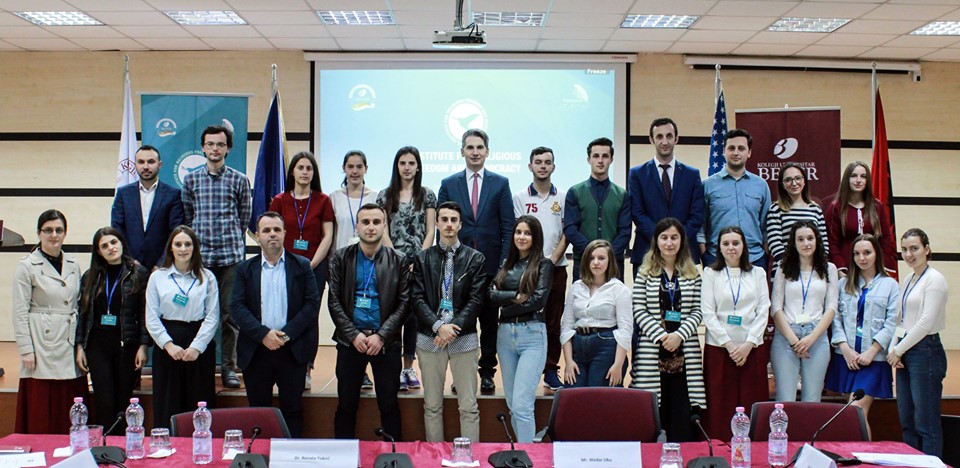Former SUSI Scholar Leads International Conference
Image courtesy of Institute for Religious Freedom and Democracy
In the summer of 2017, the Dialogue Institute hosted a six-week program for 17 scholars from 17 countries to study religious pluralism and democracy as we live it here in the U.S. Among that group, Professor Ferdinand Gjana was a leader of dialogue work in Albania and Dean of Studies for the University College of Beder, in Tirana, Albania. His intention upon return to the university was to introduce students, faculty, and government officials to some of what he had learned here and how it may or may not apply to Albania's efforts at religious freedom and interreligious dialogue alongside governmental concerns.
On May 22 - 25, 2019, Professor Gjana led a large initiative to further his intention. At the university, he organized an Institute for Religious Freedom and Democracy. The event opened with a documentary: "In Memoriam: from the prohibitions against religion to the freedom of belief." Keynote addresses were scheduled to receive remarks from government officials: Prof. Vailika Hysi, Deputy Speaker of the Parliament of the Republic of Albania and Mr. Toni Gogu, Deputy Minister of Justice of the Republic of Albania. Visits to local religious sites included the Pazar Mosque, the Catholic Cathedral, and the Bektashi Headquarters and Museum.
Then, on the last day of the institute, Professor Gjana invited Professor Swidler, DI President and Temple faculty, to speak on the dialogue principles he formulated in the 1980s as part of his trialogue (Christian, Jewish, Muslim) and Catholic reform activism. Professor Gjana also asked Rebecca Mays, Director of Education for the Dialogue Institute, to speak on religious freedom in America. Each speaker had a half hour to engage by skype the undergraduate students. Inspite of a bad echo on the platform, an interesting discussion ensued. For example, a Muslim young woman asked whether a Muslim in America could ever be elected as President. Answer given: by the letter of the law yes and by the admitted islamaphobia in the country, it was not likely to be soon.
In the follow-through of this teaching event, Professor Gjana and Rebecca Mays have agreed to collaborate to create a resource list of those Muslim academics and practitioners who are speaking and writing to articulate Isam as a religion of peace to the general public. The obvious hope is to counter islamaphobia and create greater religious literacy.

